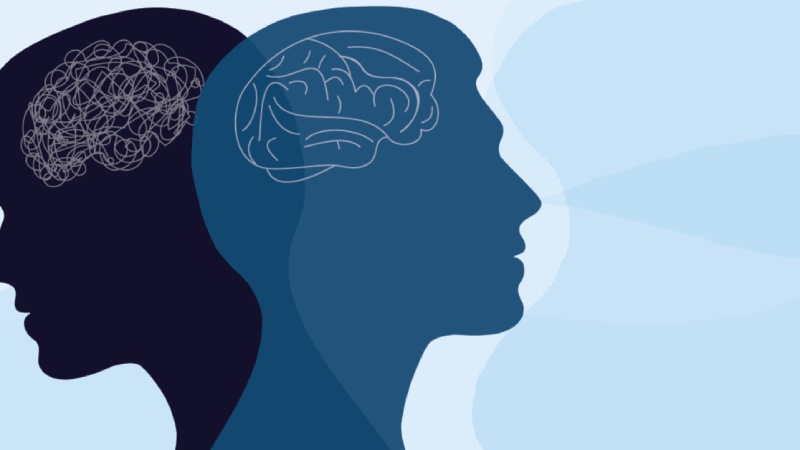
Feeling down, anxious, or not like your usual self can be a sign of a mental health problem. These feelings might make it hard to handle daily life. Mental illness touches people’s lives in different ways.
It changes how we think, feel, and act.
One important fact is that help is out there. You are not alone. This article talks about what causes mental health issues and how to spot them.
Keep reading to learn more about taking care of your mind!
Understanding Mental Health
Mental health influences our thoughts, feelings, and behaviors. It’s equally important as physical health, but often more difficult to recognize. Think of your mind resembling a garden that needs attention – hydration, sunlight, and sometimes a bit of care to remove the unwanted plants.
Just like any garden might struggle to thrive if the conditions aren’t ideal, our mental health can be negatively affected for various reasons. For some individuals, obtaining assistance from psychiatrists becomes a part of their journey to improve their wellbeing.
Mental illnesses are prevalent; they affect 1 in 5 adults every year. These encompass conditions like depression that leads to long periods of intense sorrow, anxiety disorders that cause excessive worry about numerous things, or schizophrenia that results in difficulty differentiating between what’s real and what’s not.
People of all ages can confront these obstacles. No one is isolated in this struggle – the crucial aspect is comprehending what’s happening and accessing the necessary help when required.
Causes of Mental Health Issues

Digging into the roots of mental health issues feels like solving a complex puzzle. Factors range from genes to life experiences. Picture genetics as a loaded gun and life events as the trigger.
If mental illness runs in your family, you have a higher chance of facing it too. Stressful times or long-term health problems add more strain.
Our brains are intricate systems where chemicals play the lead role.
Changes in brain chemistry due to disruptions in neurotransmitters also play a big part. Imagine if your brain’s communication network went haywire; signals get lost, leading to mood swings or anxiety.
Also, what happens during pregnancy matters a lot. If exposed to stress, toxins, or substance abuse early on, this can affect one later in life.
Trauma shakes up anyone’s world – whether it’s from combat or assault – leaving deep scars that might develop into serious mental health issues later on. And let’s not overlook substance abuse; using drugs can throw our mental balance off track big time.
All these factors weave together tightly, showing why tackling mental health needs care from experts like these psychiatrists NYC.
Common Symptoms of Mental Health Disorders
Mental health issues can appear stealthily like a skillful agent in the night. They’re not always loud and prominent. Here are some indicators to be attentive to:
- Feeling extraordinarily despondent or despairing without a discernible reason lingers like an uninvited visitor.
- Things become unclear, and focusing on tasks turns as difficult as trying to read underwater.
- Overthinking or gratuitous guilt over minor incidents can feel like hauling a backpack loaded with stones.
- Rapid mood shifts occur as quickly as the weather transitions from sunny to tempestuous in minutes.
- Gradual withdrawal from friends and activities might appear harmless initially, but it’s akin to living in isolation.
- Exhaustion persists, whether you sleep profusely or hardly snooze at all, making every day feel like an uphill battle.
- Experiencing illusions of sights or sounds that aren’t present leads you into a bewildering depth that’s challenging to resurface from.
- Comprehending others becomes arduous; it feels as if everyone is communicating in an alien dialect.
- Resorting to substances such as alcohol or drugs might appear a temporary escape but merely ensnares you into a denser haze.
- Modifying your eating patterns, either excessively or inadequately, is akin to using incompatible fuel for your vehicle.
- Abrupt anger escalation can lead to minor issues detonating like rockets.
- Contemplating self-harm is a grave warning sign that demands immediate response.
- Experiencing physical discomfort without actual injury perplexes both the body and mind.
Each of these indicators signifies that assistance might be required. It’s vital to address them and not dismiss them.
Treatment Options for Mental Health Conditions
Treating mental health conditions varies from one person to another. It often includes medications, talk therapy, or a combination of both.
- Medications help manage symptoms. Doctors prescribe them based on what works best for you.
- Psychotherapy, also known as talk therapy, involves speaking with a therapist. This process helps you understand your thoughts and feelings.
- Brain stimulation therapies are sometimes used. These include treatments like electroconvulsive therapy and transcranial magnetic stimulation.
- Support groups provide a space to share experiences. They offer comfort and advice from people who understand what you’re going through.
- Accurate diagnosis by a behavioral health specialist is key. They figure out the best treatment plan for you.
Conclusion
We gained knowledge about mental health, its origins, indicators, and remedial measures. Basic actions can bring about significant changes; discussing it and using medication aids numerous individuals.
Understanding what indicators to observe implies you’ve covered half the distance. If you sense uncertainty, be aware there are plenty of individuals prepared to assist. Existence is an expedition – maintaining your mental wellness is fundamental to savoring the journey!